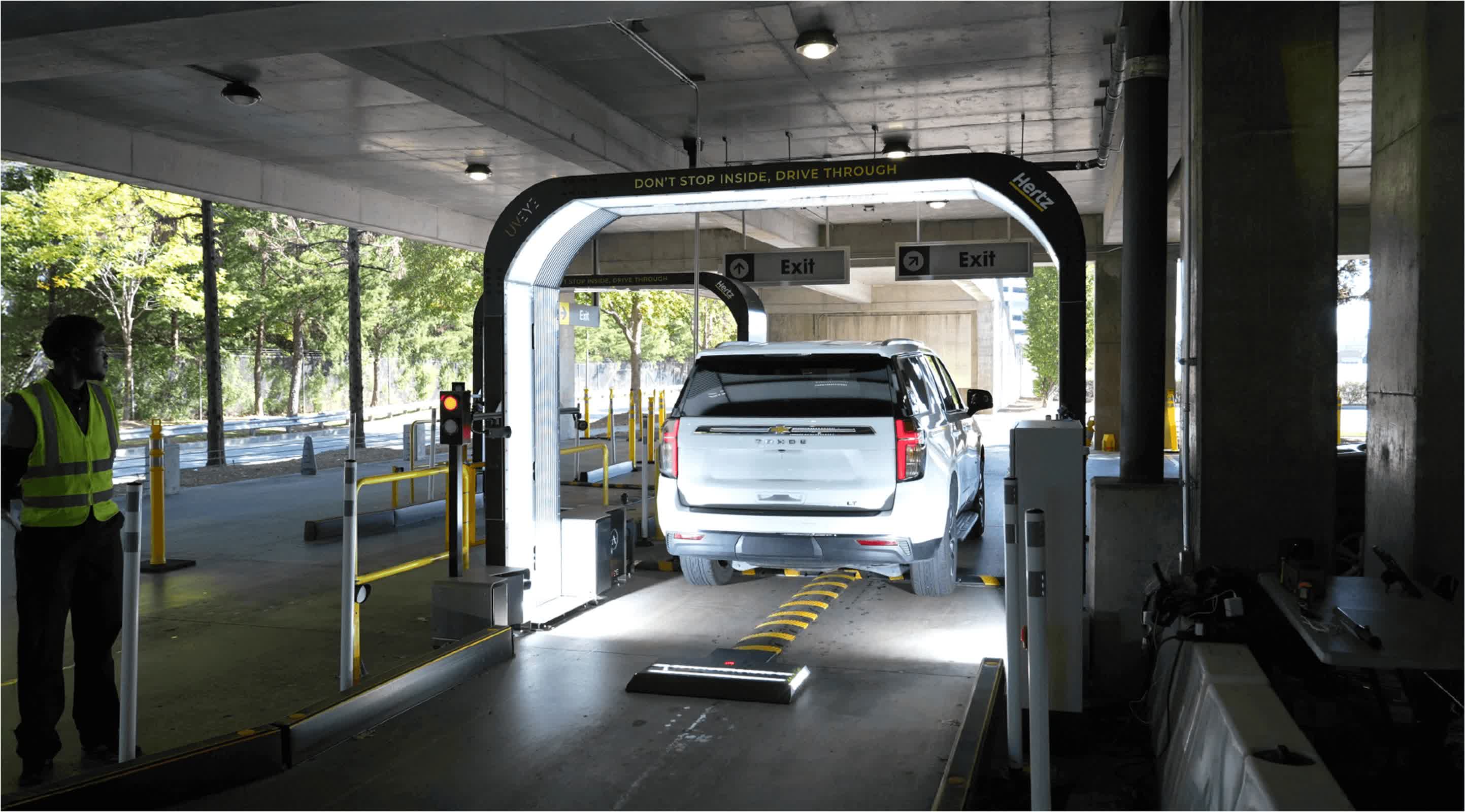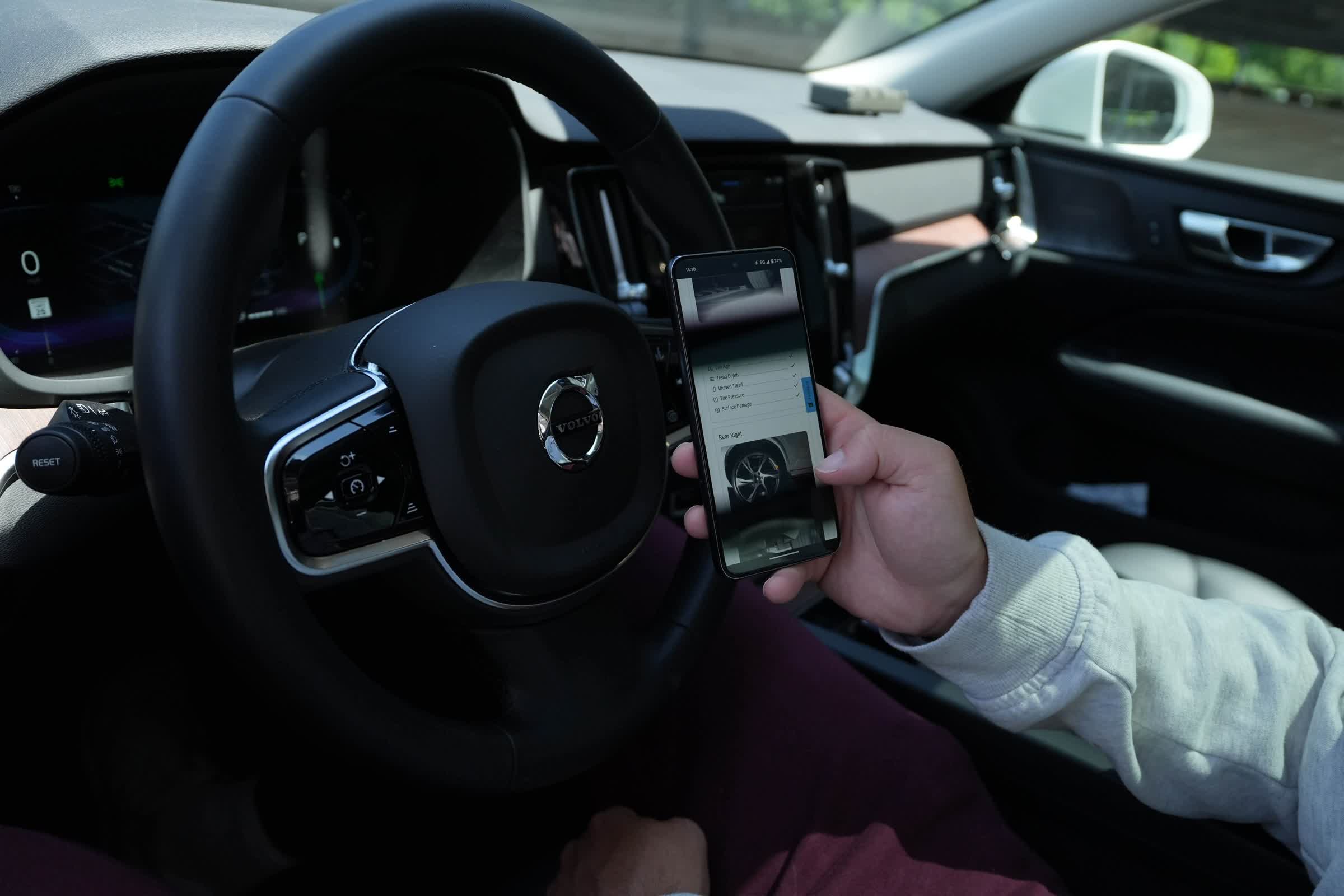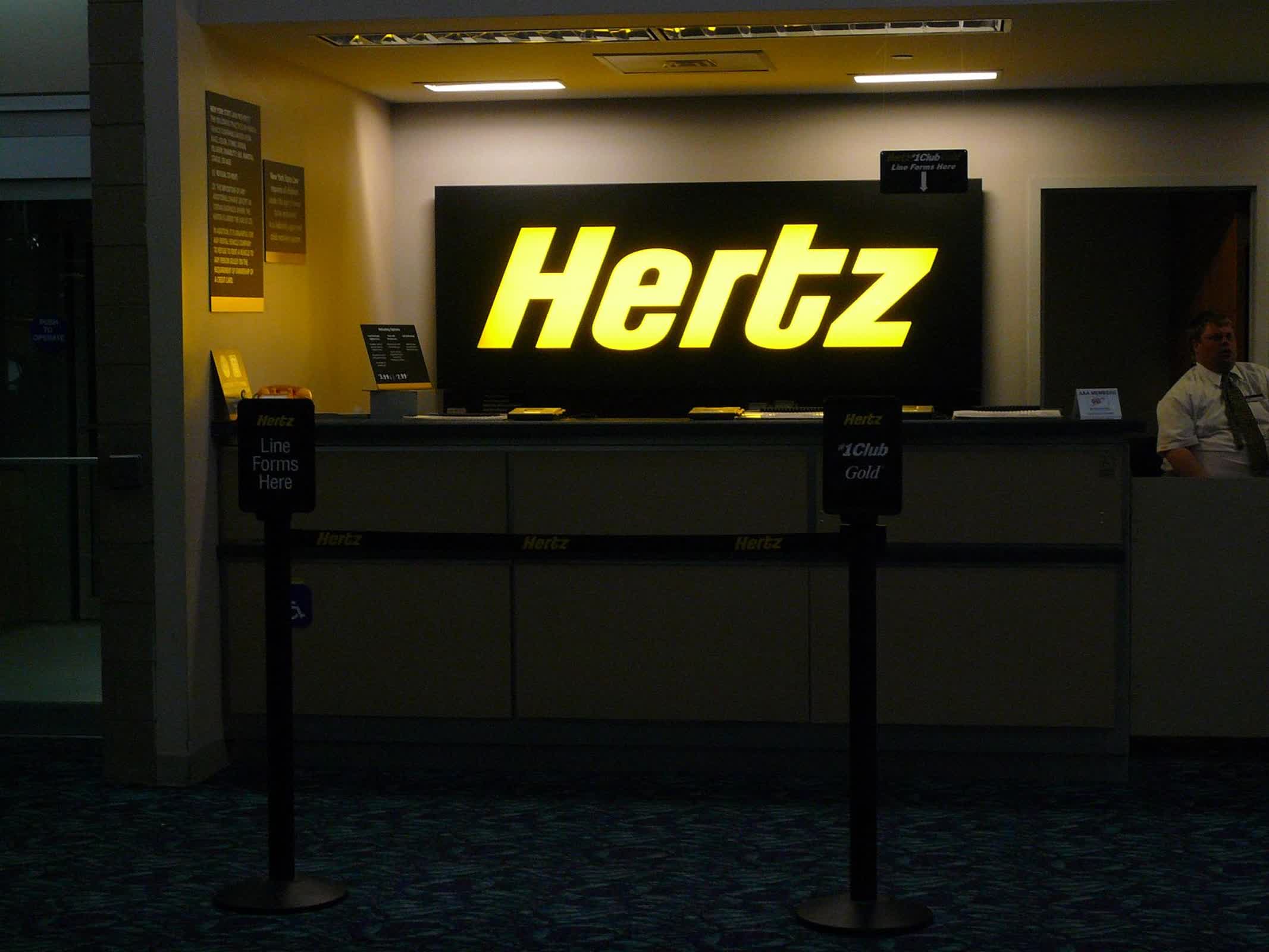A hot potato: Hertz is ushering in a new era of vehicle inspections by deploying artificial intelligence-powered scanners at select locations across the US. The move is intended to improve the accuracy and transparency of the rental car damage inspection process. However, for some customers, the technology has led to new frustrations and unexpected costs.
The company's new system, developed in partnership with Israeli firm UVeye, is already operational at major hubs such as Hartsfield-Jackson Atlanta International Airport and is expected to expand to 100 US airports by the end of the year. The technology uses a tunnel-like structure equipped with high-resolution cameras and machine learning algorithms.
When a car is returned, it is driven through the tunnel, where the system meticulously scans the vehicle's body, windows, tires, and undercarriage. The AI then compares images taken at pickup and drop-off to detect any new damage, replacing traditional manual inspections with what Hertz describes as a more frequent, accurate, and efficient process.

For customers, the process is largely automated. After passing through the scanner, renters receive a digital report – often within minutes – showing before-and-after images of their vehicle. If damage is detected, the system generates an itemized bill delivered via a web app.
While this approach promises greater transparency by providing photographic evidence, it has also led to complaints about unclear charges and the difficulty of disputing them.
One such case was shared with The Drive by a customer named Patrick, who rented a Volkswagen from Hertz's Atlanta airport location. Upon returning the car, he was notified almost immediately of a one-inch scuff on the driver's-side rear wheel. The bill: $250 for the repair, $125 for processing, and a $65 administrative fee, totaling $440.
Patrick told The Drive that while the repair charge seemed straightforward, the additional fees were more opaque. The processing fee was described as covering the cost of detecting and estimating the damage, while the administrative fee was said to offset Hertz's expenses for handling claims.
He was also offered a $52 discount if he paid within two days, or a smaller discount if he settled within a week. However, when Patrick sought clarification, he discovered the only option was to flag the claim through a chatbot – one that could take up to 10 days to generate a human response. That delay risked causing him to miss the discount window entirely.

Other customers have voiced similar frustrations online. One longtime Hertz user posted on Reddit after being charged $195 for a small dent detected by the AI scanner.
The user complained that customer service stood by the AI's findings and expressed disappointment that such minor damage – something a human inspector might have overlooked – resulted in a significant charge. The post concluded: "I will no longer be using Hertz. There are too many other rental car options to stick with one that pulls BS like this."
Hertz maintains that the vast majority of rentals are incident-free, and says the new technology is meant to benefit customers by providing clear, detailed documentation of vehicle condition and by expediting the resolution process.
Still, questions remain about the transparency and fairness of the fee structure. Hertz has not clarified whether costs are higher at AI-equipped locations compared to those using manual inspections, nor does it publish a list of typical repair charges. This lack of upfront information combined with the automated and sometimes rigid nature of the AI system has left some renters feeling uneasy.
